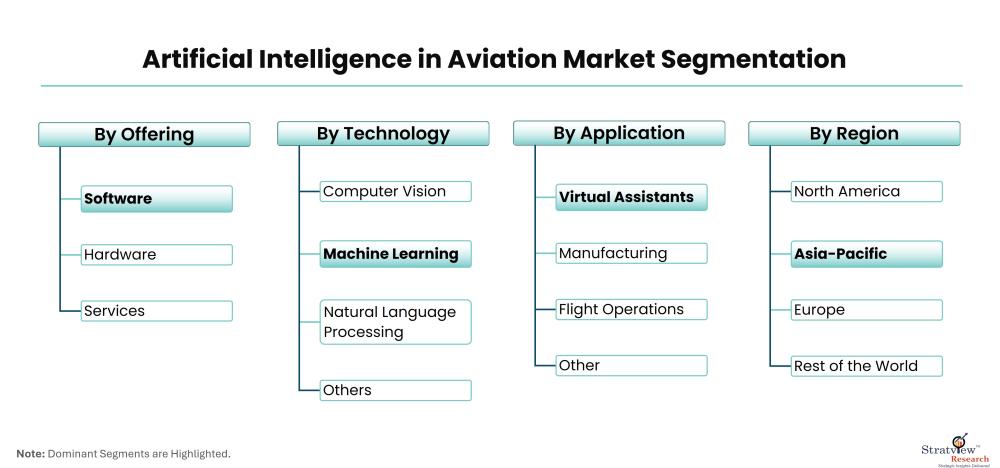
How Artificial Intelligence is Revolutionizing the Aviation Market: Key Trends and Insights
The integration of artificial intelligence (AI) in the aviation market is transforming the industry, bringing unprecedented efficiencies, cost savings, and enhancements to both operational processes and customer experiences. From improving flight operations to optimizing maintenance schedules, AI is revolutionizing aviation in several key areas. Here's a look at the top trends and insights shaping the future of AI in aviation.
According to Stratview Research, the artificial intelligence in aviation market was estimated at USD 1.13 billion in 2022 and is likely to grow at a CAGR of 27.2% during 2023-2029 to reach USD 6.08 billion in 2029.
Enhanced Operational Efficiency
One of the most significant impacts of AI in aviation is the optimization of operational processes. AI-powered systems are now being used to predict and manage air traffic, reducing delays and increasing efficiency. Advanced algorithms can analyze vast amounts of flight data, weather patterns, and air traffic to make real-time decisions, ensuring smoother, safer, and faster flight operations. Airlines are also using AI-driven predictive maintenance, where aircraft data is continuously monitored to predict failures before they occur, minimizing downtime and reducing costs.
Personalized Passenger Experience
Airlines are increasingly leveraging AI to enhance the passenger experience. AI-based chatbots and virtual assistants are providing personalized customer service, from booking flights to answering common travel questions. These AI-driven solutions streamline interactions, offering passengers faster and more efficient service. Additionally, airlines use AI to offer personalized travel recommendations, such as seat upgrades, flight choices, and targeted marketing, based on customer preferences and behaviors.
Smart Airports and Automation
AI is playing a vital role in the automation of airports, making travel smoother and more efficient for passengers. Smart airports are using AI to streamline processes such as check-in, security screenings, and baggage handling. Automated facial recognition systems at security gates reduce the time spent on manual checks, speeding up boarding processes. AI-powered robots are also being introduced to guide passengers, answer questions, and even clean airport facilities, enhancing the overall passenger experience.
Data-Driven Decision Making
The aviation industry generates enormous amounts of data daily, from flight routes to passenger preferences. AI algorithms can analyze this data to extract valuable insights, enabling airlines and airports to make informed decisions. AI-driven analytics help airlines optimize flight routes, reduce fuel consumption, and manage crew schedules more effectively, leading to cost reductions and environmental benefits.
Future Outlook
As AI continues to evolve, its role in aviation is expected to grow exponentially. From autonomous flight systems to improved air traffic management, the potential applications of AI are vast. With AI driving efficiencies, enhancing customer experiences, and cutting costs, the future of aviation is poised for even greater innovation, making the skies safer and more efficient for everyone.
